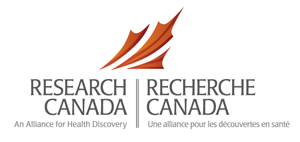
Helping to bridge the health equity gaps faced by people living with cancer
In what could be called an era of ground-breaking innovation, the way cancer is treated is changing and the potential to drastically improve patient outcomes is within our reach. However, there is a moral imperative for this to be universally true for all people living with cancer, and therefore improving health equity globally and locally must also be a priority.
The reality is that many Canadians continue to face health inequities due to social, economic, environmental, and geographical factors that may hinder their access to optimal care. One organization cannot address these complex issues alone; however, through a commitment to partnerships across the healthcare sector, we can help bridge these health equity gaps, ensuring that no patient is left behind in accessing the care they need.
A critical component of cancer care and precision medicine involves diagnostic tests that can identify biomarkers early in a patient’s cancer journey. However, significant inequities in the availability of these tests exist, particularly between provinces. Over the years, AstraZeneca has invested in partnerships with various hospitals and institutions to enhance equitable access to diagnostic testing, regardless of a person’s location. From improving access to somatic testing for individuals with metastatic prostate cancer to providing comprehensive genomic testing for eligible Canadian women diagnosed with metastatic breast cancer, these programs deliver crucial information about the cancer type, ensuring that patients receive the right treatment at the right time.
Physical geography can also drive health inequities. For instance, Newfoundland and Labrador has one of the highest incidences of cancer, with 40 percent of the population living in rural areas. This presents challenges to accessing healthcare, including travelling long distances and related financial costs. Earlier this year, AstraZeneca partnered with the Canadian Cancer Society to bring back their Wheels of Hope program to the region making it easier for people to access cancer care.
Equity gaps also exist due to the stigma associated with certain types of cancer, like lung cancer. Despite being the leading cause of cancer death for Canadians, lung cancer receives a fraction of research funding in comparison to other cancers. For the third year, AstraZeneca has partnered with Lung Cancer Canada on the Lung Ambition Awards to support Canadian research that will enhance early detection, improve timing and coordination of care, and address disparities in health equity in lung cancer.
AstraZeneca is committed to transforming the future of healthcare by pushing the boundaries of science, with the bold ambition to eliminate cancer as a cause of death. However, achieving this goal requires a concerted effort across the health ecosystem to drive positive systemic change and address the barriers that people diagnosed with cancer frequently encounter. Innovation can only reach its full potential if patients have access to the cancer care they need.
About AstraZeneca
AstraZeneca is a science-led biopharmaceutical company pushing the boundaries of science to deliver life-changing medicines. The company employs roughly 1,200 people in Canada who work to research, develop and market innovative medicines. AstraZeneca Canada was recently designated a global Clinical Hub for oncology and immuno-oncology clinical studies. We are currently leading global oncology clinical studies in lung, head, and neck cancer.
Media Contact
If you are a member of the media and have an inquiry, please call (905) 277-7111 or 1-800-565-5877 and ask to speak to a member of the Corporate Communications team or email: corporatecommunications@AstraZeneca.com.
